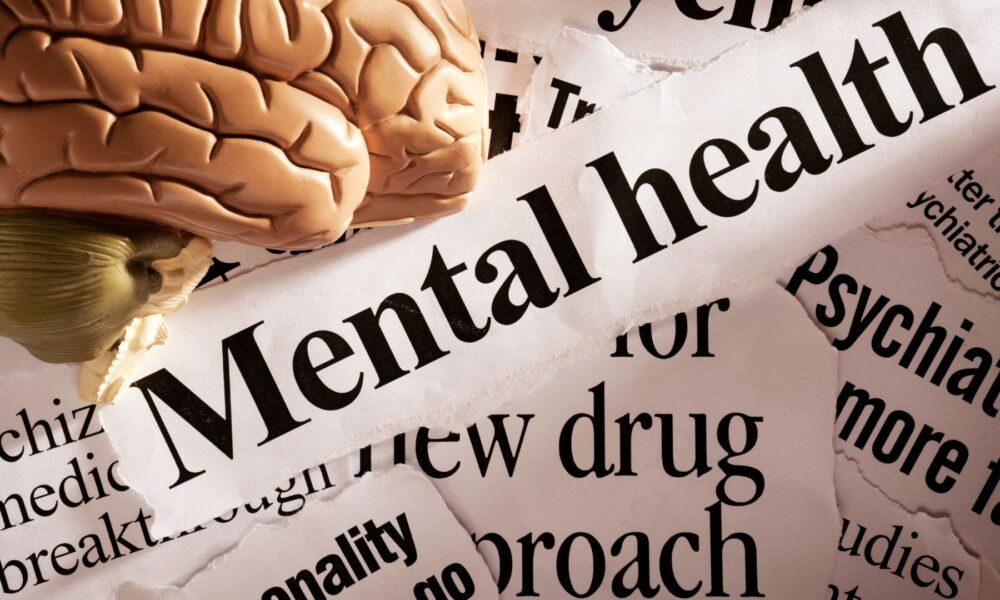Most of its disorders are grouped into categories, mainly focusing on mental and behavioral issues. Chronic stress is sometimes included as well. If there’s no specific diagnosis, an index can help identify if any organ in your body is affected. In case a person gets stressed the body releases hormones as cortisol and adrenaline, making the opposite response to get ready for Fight or Flight mechanism. While this response is great in the short-term, if we stay like this for longer periods of time it can actually cause physical issues such as:

Trigger of High Blood Pressure:
When stress does not abandon you, then the long-acting thyroid makes blood vessels tighten and shrinks together with increased risk factors for higher heart rate disease and stroke. Immune system decreased: Stress is known to dampen your body’s defenses against various infections and diseases, making you more prone to getting ill.
Gut issues: Stress can lead to stomach pain, bloating or IBS.

Anxiety and Heart Health
Cardiovascular health could be affected directly by anxiety disorders. People suffering chronic anxiety are significantly more likely to have heart disease.
Anxiety can cause: Elevated heart rate (tachycardia), which, if ongoing, may increase the risk of cardiac events. This condition plays the strain on top, exacerbating high blood pressure, which forces hearts and could lead to long-term damage. The risk of coronary artery disease, which might result from long-term anxiety-induced habits such as poor diet, lack of exercise and smoking.

The Connection Between Depression and Physical Health
While fatigue, insomnia and lack of energy are often associated with depression those symptoms only scratch the surface.
Depression has the following main characteristics: Pain, especially back pain being the most common, migraines and joint pains accompany depression usually as it can be seen in case of chronic diseases. That makes sense, he explains, because of the way pain signals are processed by the brain when mental health has broken down.
Depress affects many factors of the body such as: Weakened Immune System- The immune response is lowered due to depression, leaving those in this state more open and susceptible to an infection or disease.

Heart disease:
While periods of depression can exacerbate an existing heart condition or even set the stage for cardiovascular problems to begin in later life, there is a definite link between depression and heart disease.
Inflammation is a typical response of the immune system to injury or infection. However, mental health issues such as depression, anxiety, and chronic stress can also lead to persistent inflammation in the body. Diabetes, Cardiovascular diseases, Autoimmune disorders.
Recent studies indicate that the emotional brain and immune system are jointly sluggish; accordingly, psychological problems stowing away in one way may rationally spur an annoyance reaction from whatever is left of your body, prompting long haul unfavorable physical health results.

Lifestyle Choices and Mental Health
There is a strong two-directional interplay in how mental health disorders can drive lifestyle habits which then affect physical health. For example:
Alcohol and Substance abuse: Excessive drinking, alcohol addiction or trying to manage the emotional impact of mental health conditions like anxiety or depression with cigarettes, tobacco & illicit drug use can follow-on into severe physical health issues.
Lack of physical activity: Individuals living with mental illness may experience low energy and motivation which can leave them spending a lot time in sedentary habits raising the risk for conditions like obesity, diabetes or cardiovascular diseases.
Unhealthy Diet: Due to, the depression and anxiety that can make you eating disorder. Some people eat too much and others do not even want to look at food, both cases compounding physical health deficits.

Conclusion
We all know how important mental health is, and its effects in the body are very visible. Understanding how mental and physical health influence each other informs strategies for effectively promoting well-being. If we work with our mental health to catch early complications, then we will go a long way in diminishing further physical issues and live a better-balanced life.
Human minds are like human bodies which require as much care when one of them goes bad, the other has to go down in that harm.
